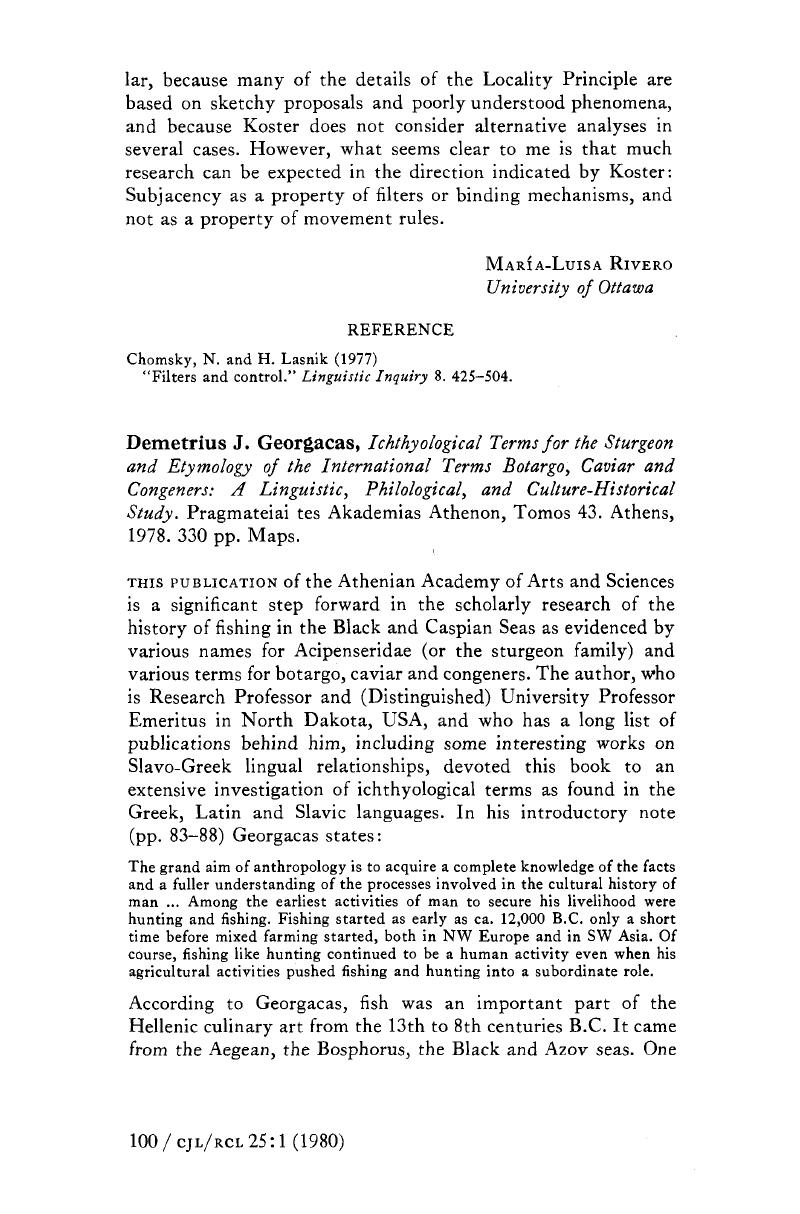No CrossRef data available.
Article contents
Demetrius J. Georgacas, Ichthyological Terms for the Sturgeon and Etymology of the International Terms Botargo, Caviar and Congeners: A Linguistic, Philological, and Culture-Historical Study. Pragmateiai tes Akademias Athenon, Tomos 43. Athens, 1978. 330 pp. Maps.
Published online by Cambridge University Press: 27 June 2016
Abstract
An abstract is not available for this content so a preview has been provided. Please use the Get access link above for information on how to access this content.

- Type
- Reviews/Comptes-rendus
- Information
- Canadian Journal of Linguistics/Revue canadienne de linguistique , Volume 25 , Issue 1 , Spring 1980 , pp. 100 - 103
- Copyright
- Copyright © Canadian Linguistic Association 1980
References
Notes
1 By an apparent oversight, the author calls it second instead of first; and he reconstructs Proto-Slavic *bělwith long ě instead of simple e, *bel-, as in the text.
2 The suffix is Greek and not difficult, so *beludzitikon is a hybrid: Slavic beluž- with the medieval Greek suffix -itikon. Georgacas informs me that he returns to this problem in a separate article (forthcoming).


